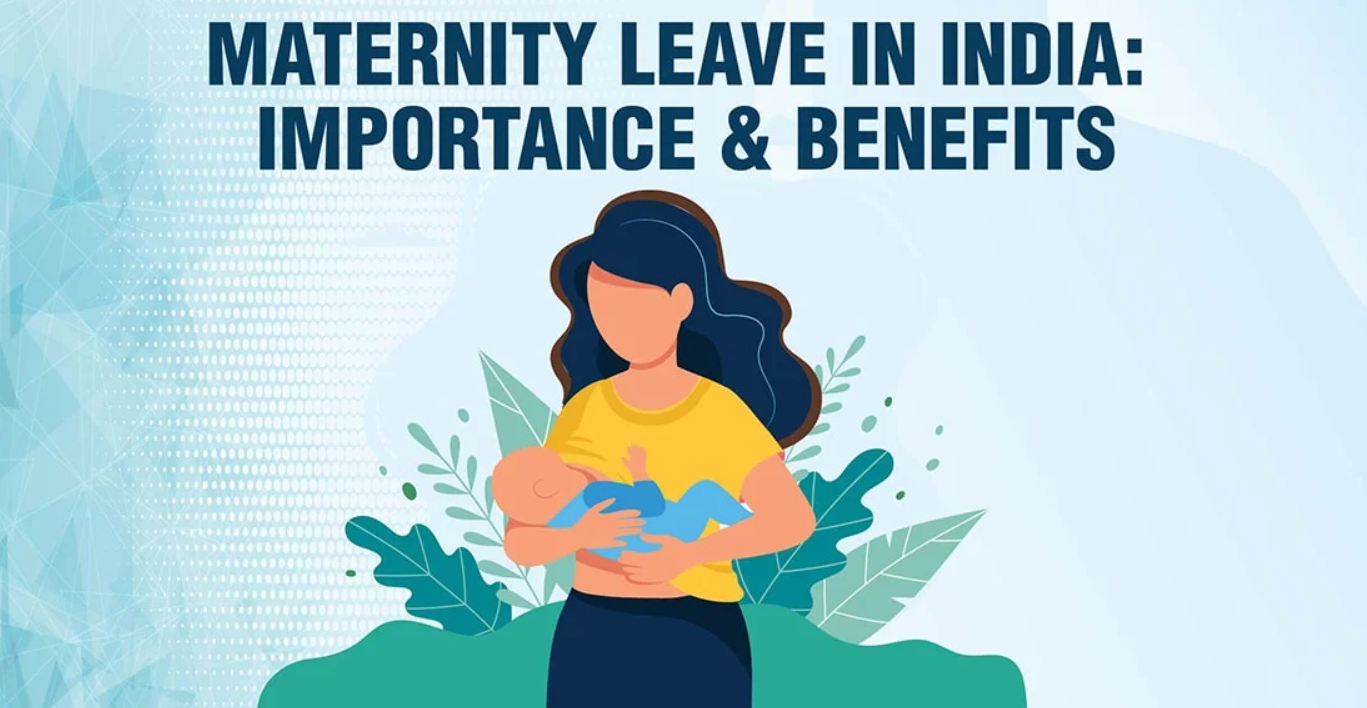Paid Maternity Leave Eligibility In India: In 2017, India introduced the Maternity Benefit Amendment Bill, which marked a major advancement for working mothers. Thanks to this historic law, paid maternity leave was increased from a meager 12 weeks to an astounding 26 weeks. This legislation sets a new benchmark for employee welfare by providing a comprehensive framework for maternity benefits and aims to support the health and well-being of both mothers and babies. Here’s a closer look at the many benefits of maternity leave, its qualifying requirements, and some frequently asked questions.
More Specific Details On Paid Maternity Leave Eligibility Criteria
To avail of maternity leave in India, individuals must navigate through a set of defined criteria:
- Employment Tenure: A critical precondition is the requirement for the employee to have been engaged with the employer for a minimum of 80 days in the year preceding the expected date of delivery. This criterion is pivotal in establishing eligibility for maternity leave.
- Scope of Eligibility: Pregnant women, adoptive moms, those who have miscarried, and those who have chosen to undergo a medical termination of pregnancy (MTP) are all covered by the legislation. It also acknowledges the rights of commissioning mothers and surrogate mothers, giving them a 26-week leave time, which is a progressive move.
- Comprehensive Compensation: The promise of receiving full compensation during the leave period is among the most comforting parts of the change. The policy guarantees financial security during this crucial time by providing 26 weeks of paid leave for the first two delivery and 12 weeks for any additional ones.
The Spectrum of Benefits On Paid Maternity Leave Eligibility
The Maternity Benefit Act extends beyond mere leave periods to encompass a range of supportive measures:
- Financial Assurance: In an effort to ease financial strains during maternity leave, the statute guarantees 100% of the average daily income for six months for the first two children and three months for the third and subsequent ones.
- Workplace Accommodations: The law requires pregnant mothers to work fewer hours and take on lesser responsibilities in the later stages of pregnancy in recognition of the physical limitations of pregnancy. It also makes sure that basic facilities like clean bathrooms and readily available water are provided, which promotes a positive work atmosphere.
- Protection against Discrimination: The policy’s primary feature, which guarantees employment security for expectant moms, is the protection against termination for pregnancy, childbirth, or any connected ailment.
- Extended and Additional Leaves: Beyond the initial leave period, provisions for childcare leave and additional leave on medical grounds are available, reflecting a holistic approach to maternal and child health.
- National Food Security Act 2013: An often overlooked benefit is the entitlement to a minimum payment of INR 6,000 under this act, providing additional financial support to mothers.
Paid Maternity Leave Eligibility Policy Rules
The operational framework of the maternity leave policy is built on a foundation of equitable compensation and accessibility:
- Compensation Mechanism: Salary during the leave period is calculated based on the wages of the three months preceding the leave application, ensuring fair compensation.
- Statutory Requirements: The policy is underpinned by various labor laws, including the Employer State Insurance Act and the Factory Act, among others, setting out detailed employer obligations regarding maternity health.
Duration of Paid Maternity Leave Eligibility
The act specifies leave durations tailored to different circumstances, reinforcing its inclusive approach:
- For up to Two Childbirths: A total of 26 weeks, with a split between pre-natal (8 weeks) and post-natal (18 weeks) leave.
- For Third or Subsequent Childbirth: A total of 12 weeks, acknowledging the differing needs of families.
- Miscarriage or MTP: A provision of 12 weeks leave, offering necessary time for recovery.
- Adoptive/Commissioning Mothers: An equitable 26 weeks, recognizing the varied paths to motherhood.

Pradhan Mantri Matru Vandana Yojana (PMMVY)
The Indian government offers maternity benefits under the Pradhan Mantri Matru Vandana Yojana. For the first live birth, it is a conditional cash transfer program for women who are 19 years of age or older who are pregnant or nursing.
For more details about the paid maternity leave eligibility follow the link:
https://web.umang.gov.in/landing/department/pmmvy.html
Frequently Asked Questions (FAQs)
How Does Maternity Leave Apply Across Different Employment Types?
The entitlement to maternity leave extends across sectors, including private and public employment, ensuring a broad coverage.
Can Fathers Avail of Maternity Leave?
While the primary focus is on mothers, paternity leave policies vary by employer and are increasingly recognized as important.
How Is Maternity Leave Funded?
Maternity leave is typically funded by the employer, with some contributions from insurance schemes where applicable.
Is There a Cap on the Number of Times Maternity Leave Can Be Availed?
While there’s no cap on the number of times one can avail maternity leave, the duration of leave does adjust after the first two childbirths.
Are There Provisions for Work From Home Post-Maternity Leave?
The Maternity Benefit Act does not require it, but in order to support returning moms, many firms are implementing flexible work arrangements, such as work-from-home possibilities. This method is becoming more widely acknowledged for its positive effects on morale and staff retention, promoting a smooth return to work.
What Happens if a Company Refuses to Grant Paid Maternity Leave Eligibility?
Businesses that refuse to offer maternity leave are breaking the 2017 Maternity Benefit Act. Workers who experience such problems may pursue legal remedies, such as registering a complaint with the relevant labor authorities. The act guarantees women’s rights are protected by offering them robust protections.
How Does Maternity Leave Impact Career Progression?
Despite the fact that there are worries about how maternity leave may hinder job advancement, discrimination on the basis of maternity leave is illegal. Maternity leave is a valuable benefit that progressive companies appreciate for their staff members. They know that this kind of support may boost employee loyalty, productivity, and overall job happiness. Perceptions around parental leave and job advancement are increasingly shifting as a result of the cultural change towards more inclusive workplaces.
Can an Employee Be Terminated While on Maternity Leave?
According to the Maternity Benefit Act, it is unlawful to fire an employee for taking maternity leave. The law shields pregnant women from discrimination on the basis of their maternity status and guarantees them job stability both during and after their pregnancies.
Is There Any Support Available for Mothers Returning to Work After Maternity Leave?
These days, a lot of businesses provide daycare facilities on-site, breastfeeding rooms, flexible work schedules, and part-time employment opportunities as support programs for women who are returning to the workforce. In order to facilitate moms’ return to the workforce, several organizations also provide professional development plans, counseling, and reintegration programs.
How Do Paid Maternity Leave Eligibility in India Compare to Other Countries?
India is already ahead of many other nations in terms of maternity leave benefits because to the extension of paid maternity leave to 26 weeks. However, there are significant regional differences in maternity leave legislation; certain nations give lengthier leave durations than others. A major advancement in helping working moms in India has been made with the enactment of the Maternity Benefit Amendment Bill, 2017, which also reflects the growing global understanding of the significance of such laws.
For working women in India, the Maternity Benefit Amendment Bill, 2017 has changed everything by providing longer-term support and protections that weren’t previously available. Through the provision of paid leave, job security, and other benefits, the legislation supports new moms’ physical and mental recuperation while also enabling them to continue working. Workplaces must change to become more inclusive and accommodating to the many requirements of their employees as society continues to change. A key component of this development is maternity leave, which reflects a larger commitment to family well-being and gender equality.
FOR MORE NEWS REGARDING JOBS, RESULTS AND SARKARI NAUKRI POSTS FOLLOW OUR WEBSITE https://mpscbook.com/
